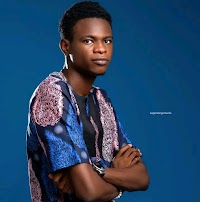Nwonyo Fishing and Cultural Festival is said to be one of the oldest of its kind in Africa. The festival started about 106 years ago and is usually held at the Nwonyo Lake, located some five kilometres north of Ibi town.
The name “Nwonyo” literally means “a hideout” for monstrous aquatic animals such as crocodiles and hippopotamus. This meaning was derived from the fact that the Nwonyo creek contains a variety of these aquatic animals.
However, there are two myths surrounding the actual meaning of the word Nwonyo. The first version says it means, “under the locust bean tree;” while the second version says, “abode of the snake,” in Jukun language.
The Nwonyo Lake is said to be the largest in West Africa, running a stretch of about 15 kilometres tributary to the River Benue. According to oral tradition, the lake was discovered by Bula (in Wuroboh language) a great descendant of the Jibu dynasty who was sent to Ibi to look after activities carried out by traders around the river.
Bula discovered that the lake was more than a source of fish supply; he then transformed the large scale fishing activity into a fishing festival by members of Ibi Community. This transformation began in 1826. During his reign, communities living around Nwonyo Lake were invited to the lake to catch fish once in every year. The catch made was then divided into three portions; and because of his liberal nature, Bulah would take one portion only and give the remaining two portions to the fishermen
As stated earlier, the Nwonyo Fishing and Cultural Festival, according to oral tradition, became traditionally recognized during the reign of Bula in 1826, by members of Ibi community. In the course of time, the desire to raise money for the community was said to have influenced some of his successors into hiring out the lake instead of continuing with the festival.
In 1954, the festival became a divisional affair with spectators coming from all over the defunct Wukari Division with the Aku Uka of Wukari, Mallam Adi Byewi, the Ukwe of Takum, Alhaji Ali Ibrahim, the Gara of Donga, Mallam Sambo Garbosa, and the Officer-in-charge of the Wukari federation, Mallam I. D. Muhammed, in attendance.
In 1973, the festival was officially organized by the defunct Wukari federation through the efforts of the then Governor of Benue/Plateau State, Mr. J. D. Gomwalk. It was organized in an elaborate manner complete with water and traditional sports and this exposed and brought the festival to limelight. In attendance were the then Governor of Benue/Plateau, Mr. Gomwalk and the then Col. T.Y. Danjuma.
The festival at this point started to record some significant progress and performance such as the biggest catch, “Giwan Ruwa”. In 1970, it weighed 60 pounds; the 1971 “giwan ruwa” weighed 175 pounds; while in 1973, the biggest catch weighed 124 pounds.
Other Governors who witnessed the festival in the late 70’s were the then Col. M. D. Jega (1978), Brigadier A.R.A. Mahmud (1979)
and the Governor of the defunct Gongola State Alhaji Abubakar Barde, who later re-introduced it as an Annual Fishing Festival during the Second Republic (1979-83).
Incidentally, the festival was not given any significant attention thereafter until it was repackaged by the Governor Jolly Nyame Administration (2005-2006). But it was still relatively known as an Annual Fishing Festival. This was said to have marked the turning point in the history of the festival as it acquired an even greater significance when the state government took over its organization and funding. It also received a massive boost by way of increased funding, prestige, and attention.
By 2008, the festival was re-introduced as an International Fishing and Cultural Festival by Governor Danbaba Danfulani Suntai. In November the same year, the governor established the Taraba State Tourism Development Board (TSTDB), and the responsibility of staging and organizing the festival was automatically transferred to the Board.
The Nwonyo Cultural and Fishing Festival signifies, not only the cultural identity of the people of Ibi, but also their socio-economic identity. The festival has placed the state on the tourism map with great potentials for attracting both local and foreign investors.
Where is the festival now? Where's that festival that brings a lot of people together and boost our socio economic activities?
Where's Nwonyo Fishing Festival?
Source:
National Institute Of Cultural Orientation
Edited by Jeremiah Genesis Ezra
(Jeremy)




Love What You Read? Comment Here